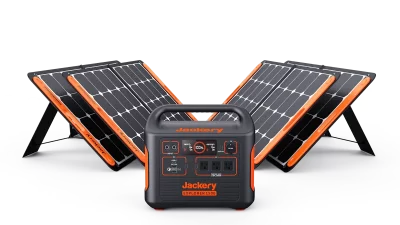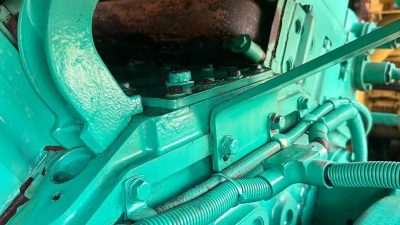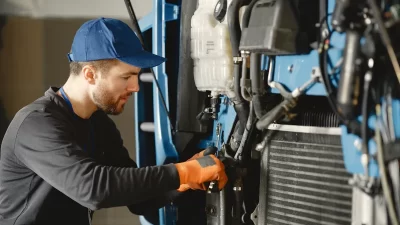
Lors de l'achat de générateurs de qualité, il est important de tenir compte de la fiabilité de l'appareil. Vous voulez un groupe électrogène qui fonctionne bien et qui a une longue durée de vie. Évaluez la quantité d'électricité que vous utilisez à la maison et la fréquence à laquelle vous aurez besoin d'une alimentation de secours. Recherchez des dispositifs de sécurité qui vous protègent pendant le fonctionnement. Assurez-vous que le générateur est convivial et facile à utiliser. Prenez le temps de comparer les différentes options et choisissez un modèle qui offre le meilleur rapport qualité-prix pour les années à venir.
Principaux enseignements
Déterminez la puissance dont vous avez besoin. Ajoutez 25% de plus pour être sûr. Cela permet d'éviter les surcharges et d'assurer la sécurité de votre générateur.
Choisissez le type et la taille de générateur qui conviennent à vos besoins. Pensez à la quantité d'énergie que vous utilisez et à l'endroit où vous l'utiliserez. Cela permet à votre groupe électrogène de bien fonctionner.
Choisissez des générateurs dotés de dispositifs de sécurité. Recherchez un dispositif d'arrêt du monoxyde de carbone et une protection contre le manque d'huile. Ces dispositifs contribuent à votre sécurité.
Choisissez des types de combustibles qui correspondent à la façon dont vous les stockez et les utilisez. Le propane fournit une énergie propre. Le diesel dure longtemps.
Achetez des marques auxquelles les gens font confiance. Assurez-vous que la garantie est bonne. Prévoyez d'entretenir souvent votre générateur. Cela l'aidera à durer plus longtemps.
Besoins en énergie
Calculer la puissance
Vous devez savoir quelle puissance vous utilisez avant d'acheter un générateur. Vous éviterez ainsi d'acheter un générateur trop faible ou trop puissant. En vérifiant vos besoins en électricité, vous assurez la sécurité et le bon fonctionnement de votre groupe électrogène. Des groupes comme le NERC et la FERC affirment que les propriétaires doivent vérifier les modèles de leurs générateurs.. Ils veulent s'assurer que le générateur fonctionne comme il se doit. Ces règles montrent qu'il n'est pas seulement intelligent de vérifier ses besoins en électricité, mais que cela est nécessaire pour la sécurité et la fiabilité.
Pour connaître vos besoins en watts, vous pouvez essayer différentes méthodes :
Utilisez une pince ampèremétrique pour connaître votre consommation la plus élevée. Additionnez les ampères de tous les panneaux pour obtenir le total.
Vérifiez vos factures d'électricité. Recherchez le pic le plus élevé de l'année écoulée. Ajouter 25% pour couvrir les besoins supplémentaires.
Pour les entreprises, utilisez des règles simples. Les bureaux ont souvent besoin de 5 watts par pied carré plus 50 kW. Les magasins peuvent avoir besoin de 10 watts par pied carré plus 50 kW.
Gardez toujours différence entre les puissances de démarrage et de fonctionnement. Certaines machines ont besoin de plus de puissance pour démarrer que pour fonctionner.
Utilisez des calculateurs de puissance en ligne pour passer du kW au kVA en passant par les ampères et les volts.
Conseil : Ajoutez toujours environ 25% à votre puissance totale. Ce supplément permet à votre groupe électrogène de faire face à des hausses soudaines de puissance.
Taille du générateur d'allumettes
Une fois que vous connaissez votre puissance totale en watts, choisissez la bonne taille de générateur. Choisissez un groupe électrogène qui répond à vos besoins ou qui les dépasse légèrement. Si votre groupe électrogène est trop petit, il risque de surcharger et de s'arrêter. S'il est trop grand, vous risquez de gaspiller du carburant et de l'argent.
Pour les maisons, dressez la liste de tous les appareils et dispositifs importants. Additionnez leurs puissances de démarrage et de fonctionnement.
Pour les entreprises, utilisez la superficie et les listes d'équipements pour évaluer les besoins.
Assurez-vous que votre groupe électrogène correspond à la phase et à la tension de votre réseau.
Un groupe électrogène de bonne taille vous permet de garder vos lumières allumées et vos biens en sécurité. Elle permet également à votre générateur de durer plus longtemps et de mieux fonctionner.
Types de générateurs

Le choix du bon type de générateur vous permet d'obtenir de bons résultats. Chaque type répond à des besoins différents. Ils ont des caractéristiques et des niveaux de puissance particuliers. Voici ce qu'il faut savoir :
Portable
Les générateurs portables fournissent de l'électricité rapidement et peuvent être utilisés partout. Vous pouvez les utiliser pour le camping ou les activités de plein air. Ils sont également utiles en cas de courtes pannes de courant à la maison. La plupart des modèles portables fonctionnent à l'essence ou au diesel. Les groupes électrogènes portables au diesel durent plus longtemps et conviennent parfaitement aux travaux difficiles.. Les modèles à essence coûtent moins cher et sont faciles à remplir dans les stations-service.
La puissance de sortie est comprise entre 1 000 et 10 000 watts.
Idéal pour : Sauvegarde à domicile (à court terme), plaisir en plein air, petits chantiers.
Facile à déplacer, mais les grands modèles peuvent nécessiter des roues.
Type de générateur | Puissance de sortie (Watts) | Efficacité énergétique (kWh/gallon) | Notes |
|---|---|---|---|
Diesel Portable | 3,000 - 15,000 | 8.3 - 15.5 | Efficacité élevée, robustesse, longévité |
Essence Portable | 1,000 - 15,000 | 4.5 - 8.3 | Moins coûteux, facile à ravitailler |
Inverter Portable | 500 - 2,300 | 4.5 - 4.75 | Puissance silencieuse et propre, idéale pour l'électronique |
Conseil : Les générateurs portables sont utiles en cas d'urgence. Ils consomment plus de carburant et doivent être réapprovisionnés fréquemment.
Onduleur
Les générateurs à inverseur utilisent une technologie intelligente pour fournir une énergie propre et régulière. Ils modifient le régime du moteur pour économiser du carburant et font moins de bruit. Vous pouvez les utiliser pour les ordinateurs portables, les téléphones et d'autres appareils électroniques sensibles.
Ils sont légers et faciles à transporter.
Le meilleur pour : Le camping, les véhicules récréatifs, le tailgating et l'électronique domestique.
En attente
Les générateurs de secours se mettent en marche d'eux-mêmes en cas de panne de courant.. Ils se branchent sur le réseau électrique de votre maison ou de votre entreprise. La plupart fonctionnent au gaz naturel, au propane ou au diesel. Les unités de secours peuvent être refroidies par air ou par liquide. Les modèles refroidis par liquide sont plus puissants et conviennent aux grandes maisons ou entreprises.
Puissance de sortie : 7 000 à 200 000+ watts.
Idéal pour : Sauvegarde de l'ensemble de la maison, entreprises, lieux importants.
Il faut un professionnel pour les installer.
Les générateurs de secours sont très fiables. Ils sont peut durer jusqu'à trois semaines si vous en prenez soin.
Solaire
Les générateurs solaires utilisent la lumière du soleil et des batteries pour produire de l'énergie propre. Ils sont silencieux et ne nécessitent pas beaucoup d'entretien. De nouvelles batteries les rendent plus légers et plus résistants. Nombre d'entre eux peuvent être connectés à des systèmes domestiques intelligents pour faciliter les contrôles.
Le meilleur pour : Petits appareils, camping, secours d'urgence et endroits ensoleillés.
Pas de carburant, pas de pollution.
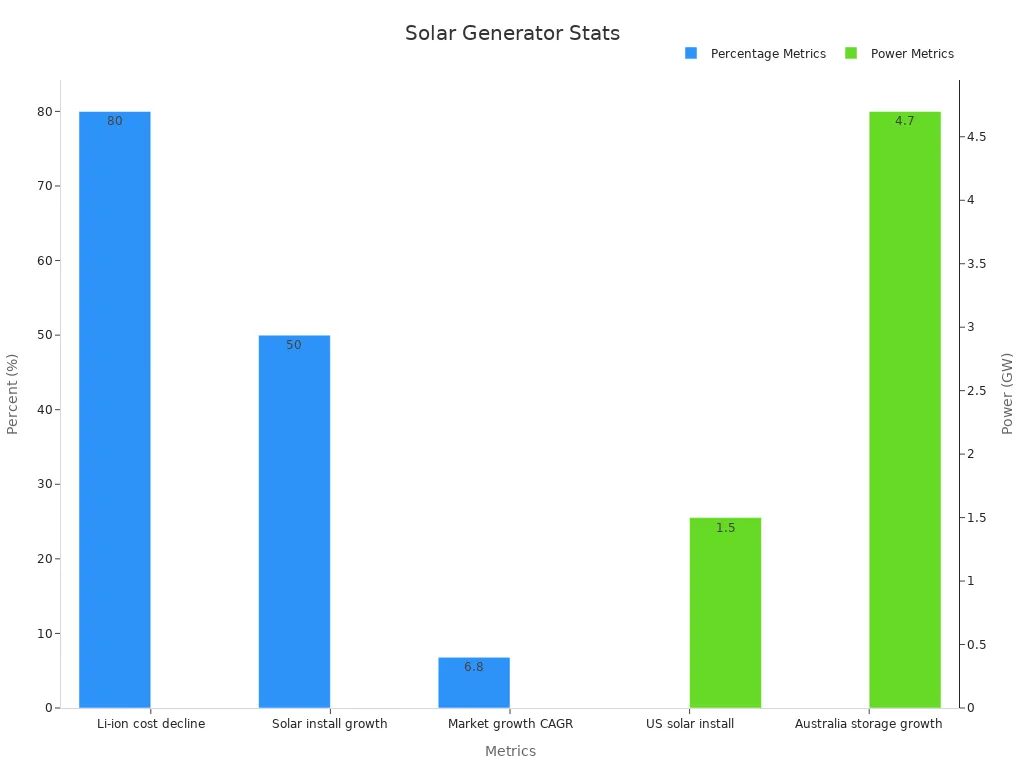
Les générateurs solaires sont de plus en plus populaires. En effet, les batteries coûtent moins cher et les pouvoirs publics accordent des primes.
Choisir le bon type :
Utilisez des générateurs portables ou à onduleur pour les besoins extérieurs ou à court terme.
Choisissez des générateurs de secours pour l'ensemble de la maison ou de l'entreprise.
Essayez les générateurs solaires pour vos besoins en énergie verte.
Les modèles refroidis par liquide conviennent mieux aux grandes entreprises ayant des besoins élevés en énergie. Les modèles refroidis par air conviennent aux petites maisons ou aux entreprises légères. Choisissez toujours le type de générateur qui correspond à vos besoins en électricité et à vos projets.
Caractéristiques principales
Sécurité
Lors du choix d'un groupe électrogène, vérifiez toujours ses caractéristiques de sécurité. De nombreux groupes électrogènes de qualité sont équipés de détecteurs de monoxyde de carbone (CO). Ces capteurs éteignent le générateur si le taux de CO devient trop élevé. Vous êtes ainsi à l'abri des fumées nocives. Le dispositif d'arrêt en cas de manque d'huile arrête le moteur lorsque le niveau d'huile est bas. Cela protège le moteur contre les dommages. Le démarrage électrique permet d'allumer rapidement le générateur. Il est utile en cas d'urgence. Les commutateurs de transfert vous permettent de connecter le générateur à votre maison en toute sécurité. Vous n'avez pas besoin d'utiliser des rallonges. Certains modèles sont dotés d'un système de surveillance intelligent. Cela vous permet de surveiller le fonctionnement du générateur et de détecter rapidement les problèmes.
Conseil : Utilisez toujours votre générateur à l'extérieur et loin des fenêtres. Cela empêche le CO de s'accumuler à l'intérieur.
Durabilité
Un générateur solide dure plus longtemps et permet d'économiser de l'argent au fil du temps. Les entreprises testent les générateurs pour voir combien de temps ils peuvent fonctionner. Les experts utilisent les Procédé WIDIPRO pour vérifier le vieillissement de l'isolation. Cela leur permet d'évaluer la durée de vie restante des pièces. Des contrôles et des soins réguliers permettent à certains générateurs de durer plus de 50 ans. Le tableau ci-dessous montre comment les experts étudient et aident les générateurs à durer plus longtemps :
Aspect | Résumé |
|---|---|
Méthode de diagnostic | Le procédé WIDIPRO® permet de suivre le vieillissement de l'isolation et de prédire sa durée de vie |
Étude de cas Lifespan | Deux générateurs hydroélectriques ont fonctionné pendant 36 à 53 ans grâce à des contrôles réguliers. |
Facteurs de vieillissement | La chaleur, l'électricité, l'environnement et le mouvement affectent le vieillissement |
Prévision de durée de vie | Utilise des mesures, et pas seulement des contrôles visuels, pour une meilleure planification |
Implication de la maintenance | Des contrôles réguliers permettent de résoudre les problèmes à temps et d'éviter les pannes. |
Niveau de bruit
Le bruit est important si vous utilisez votre générateur à la maison. Certains générateurs sont très bruyants. D'autres sont beaucoup plus silencieux. Le moteur, le ventilateur de refroidissement et les gaz d'échappement sont à l'origine de la majeure partie du bruit. Les générateurs bruyants peuvent être aussi bruyants qu'une tronçonneuse. Vous pouvez les rendre plus silencieux avec des barrières, de l'isolation ou de meilleurs silencieux. Le tableau ci-dessous montre d'où vient le bruit et comment le réduire :
Source de bruit | Niveau de bruit (dB) | Comment réduire le bruit |
|---|---|---|
Moteur | Utiliser des barrières ou de l'isolation | |
Ventilateur de refroidissement | 100-105 | Ajouter des matériaux insonorisants |
Échappement (sans silencieux) | 120-130 | Installer des silencieux plus grands |
Pour réduire le bruit, choisissez des générateurs à inverseur ou des modèles insonorisés.
Durée d'exécution
La durée de fonctionnement est la durée pendant laquelle un générateur fonctionne avant de faire le plein. Les générateurs efficaces consomment moins de carburant et durent plus longtemps. Les générateurs diesel fonctionnent souvent 20 à 30 heures avec un seul réservoir. Les modèles à essence ont une autonomie de 8 à 14 heures. Les générateurs à inverseur peuvent fonctionner de 8 à 10 heures. Ils peuvent durer plus longtemps si vous utilisez moins d'énergie. Les générateurs de secours au gaz naturel peuvent fonctionner pendant des jours sans s'arrêter. Des durées de fonctionnement plus longues signifient moins d'arrêts et une alimentation plus régulière.
Générateurs de secours : 24 heures à plusieurs centaines d'heures (au gaz naturel)
Générateurs portables : 8-20 heures (en fonction de la taille du réservoir et de la charge)
Générateurs diesel : 20-30 heures (haute efficacité)
Générateurs au propane : 10 à 20 heures (émissions plus propres)
Le choix d'un groupe électrogène ayant une longue durée de fonctionnement vous permet de rester alimenté pendant les pannes de longue durée et d'économiser du carburant.
Options de carburant
Il est important de choisir le bon carburant pour votre générateur. Il influe sur le montant de vos dépenses et sur la qualité de votre fonctionnement. Chaque type de carburant présente des avantages et des inconvénients. Voici ce qu'il faut savoir :
Essence
Les générateurs à essence sont très courants. Vous pouvez vous procurer de l'essence dans la plupart des stations-service. Ces groupes électrogènes sont parfaits pour une utilisation de courte durée ou en cas d'urgence. Les moteurs à essence démarrent rapidement, même par temps froid. Mais l'essence ne se conserve pas longtemps. Elle peut se dégrader au bout de quelques mois. Les générateurs à essence sont souvent plus bruyants que les autres types de générateurs. Ils sont également plus polluants. Si vous utilisez beaucoup votre groupe électrogène, vous risquez de payer plus cher le carburant.
L'essence est facile à trouver et à remplir.
Fonctionne bien pour les petits générateurs et les générateurs portables.
L'essence dure environ 3 à 6 mois.
Il produit plus de bruit et d'émissions.
Propane
Le propane est un combustible plus propre. Vous pouvez conserver le propane pendant des années sans qu'il ne se détériore. Les moteurs au propane produisent moins de monoxyde de carbone et de smog. Leur entretien est également moins coûteux. Les gaz d'échappement du propane dégagent peu d'odeur et de fumée. Mais le propane a moins d'énergieIl se peut donc que vous deviez remplir le réservoir plus souvent.
Métrique | Avantages du propane par rapport au diesel et à l'essence |
|---|---|
Émissions de CO | |
Émissions de NOx | 20% inférieur à l'essence |
Hydrocarbures générateurs de smog | 80% inférieur au diesel |
Durée de conservation | Indéfinie |
Coût de la maintenance | A propos de 40% moins de diesel |
Le propane est un bon choix si vous souhaitez une énergie propre et un stockage facile.
Diesel
Les générateurs diesel sont solides et durent longtemps. Ils peuvent fonctionner pendant de nombreuses années si vous en prenez soin. Les moteurs diesel peuvent supporter un usage intensif et fonctionner longtemps. Ils utilisent mieux le carburant que l'essence ou le propane. Le carburant diesel ne s'enflamme pas facilement. plus sûr pour certains emplois. Les nouveaux générateurs diesel répondent des règles strictes en matière de pollution. Mais ils peuvent être lourds et bruyants.
Fonctionnalité | Générateurs diesel |
|---|---|
Durée de vie | |
Efficacité | Une économie de carburant élevée |
Fiabilité | Excellent pour les sauvegardes critiques |
Maintenance | Faible, mais des contrôles réguliers sont nécessaires |
Inconvénients | Lourd, bruyant, le carburant se dégrade après 1 an |
Gaz naturel
Les générateurs au gaz naturel se branchent sur la conduite de gaz de votre maison. Vous ne devez pas stocker de combustible. Ces générateurs sont silencieux et moins polluants. Ils sont démarrer facilement par temps froid et fonctionnent bien en cas de panne prolongée. L'approvisionnement en combustible est régulier si les canalisations fonctionnent. Le gaz naturel est souvent moins cher que l'essence ou le diesel si vous l'utilisez beaucoup.
Combustible fossile le plus propre.
Moins de bruit et moins d'émissions.
Il n'est pas nécessaire de stocker du carburant.
De nombreux générateurs peuvent utiliser deux combustibles. Cela vous permet de changer de combustible et d'économiser de l'argent. Vérifiez toujours quels combustibles sont faciles à obtenir dans votre région avant de faire votre choix.
Achat de générateurs de qualité
Réputation de la marque
Pour acheter des générateurs de qualité, vérifiez d'abord la marque. Les bonnes marques fabriquent des produits fiables depuis de nombreuses années. Elles consacrent de l'argent à la recherche et aux tests. Cela permet à leurs groupes électrogènes de fonctionner correctement dans différents endroits. Des marques comme Generac, Kohler, Honda, Yamaha, Cummins et Mitsubishi sont souvent en tête de liste. Ces entreprises sont réputées pour leur qualité, leur sécurité et l'aide qu'elles apportent à leurs clients.
Les experts et les acheteurs affirment tous deux que la réputation de la marque est importante. Orgon Power affirme que Caterpillar, Cummins, Kohler, Generac et MTU sont des leaders.. Ils testent leurs générateurs dans des situations difficiles. Ces marques présentent également des caractéristiques spéciales telles que des systèmes de gestion de l'énergie et des commandes numériques. Vous pouvez faire confiance à ces entreprises car elles facilitent l'accès aux pièces détachées et au service après-vente. Elles s'efforcent également d'aider l'environnement en rendant leurs produits plus respectueux de la nature.
Vous pouvez comparer les grandes marques entre elles dans la rubrique table ci-dessous :
Marque | Type de preuve | Détails de l'appui |
|---|---|---|
Honda | Performance et clientèle | Connu pour sa fiabilité et son fonctionnement silencieux ; les clients sont prêts à payer un supplément pour ces qualités. |
DuroMax | Performance | Moteurs durables, technologie innovante à double carburant, très appréciés des camping-caristes pour leur polyvalence et leur puissance. |
Briggs & Stratton | Performance | produit des moteurs fiables et puissants utilisés par d'autres marques, ce qui témoigne de la qualité et de la durabilité des moteurs. |
Des études de consommation montrent que Honda, Generac, Caterpillar, DeWalt, Craftsman, Briggs & Stratton, Yamaha, Ryobi, Champion et Westinghouse sont des marques de confiance.. Ces marques sont connues pour fabriquer des générateurs qui durent et pour aider les clients.
Conseil : Choisissez un générateur d'une marque en laquelle les gens ont confiance. Vous éviterez ainsi les problèmes et pourrez plus facilement obtenir de l'aide en cas de besoin.
Il convient également d'examiner les types de générateurs vendus par chaque marque. Kohler fabrique des générateurs pour les particuliers, les petites entreprises et les grandes sociétés.. Generac est un leader dans le domaine de l'alimentation de secours pour les particuliers et les entreprises. Atlas Copco, Caterpillar et Cummins vendent de nombreux types de générateurs dans le monde entier. Lorsque vous achetez des générateurs de qualité, le choix d'une marque réputée vous permet de vous sentir en sécurité.
Garantie
La garantie est un autre élément important de l'achat de générateurs de qualité. Une bonne garantie vous évite de payer des frais de réparation élevés. Elle montre également que l'entreprise croit en son produit. Vérifiez toujours ce que couvre la garantie et sa durée. Certaines marques couvrent presque tout, tandis que d'autres ne couvrent que le moteur ou le groupe motopropulseur.
Voici un tableau qui présente les types de garantie les plus courants et ce qu'ils couvrent :
Type de garantie | Détails de la couverture | Durée typique | Utilisation et coûts |
|---|---|---|---|
Pare-chocs à pare-chocs | Couvre tous les défauts à l'exception de l'usure normale | Au moins 3 ans ou 36 000 miles | Réduction des frais de réparation |
Groupe motopropulseur | Couvre le moteur, la transmission, le groupe motopropulseur et les pompes à carburant. | 4 ans/60 000 miles ou plus | Bon pour les composants dont le coût de réparation est élevé |
Émissions | Couvre les composants liés aux émissions | 2 ans/24 000 miles minimum | Protection contre les coûts liés à l'échec de la réglementation |
Corrosion | Couvre les dommages causés par la rouille en usine | Varie selon le fabricant | Protège contre les réparations coûteuses dues à la rouille |
Statistiques d'utilisation | Seuls 6,3% achètent des extensions de garantie ; 47% les détiennent ; seuls 10% les utilisent | Les extensions de garantie peuvent être utiles pour les appareils plus anciens ou les réparations coûteuses. |
Certaines entreprises accordent désormais garanties fondées sur la performance. Ces garanties promettent que votre générateur fonctionnera à un certain niveau pendant la durée de la garantie. Si ce n'est pas le cas, l'entreprise le réparera, le remplacera ou le remboursera. Ce type de garantie vous donne plus de confiance lorsque vous achetez des générateurs de qualité.
Remarque : Lisez toujours les règles de garantie avant d'acheter. Assurez-vous de savoir ce qui est couvert et ce qui ne l'est pas. Un bon service clientèle vous permet d'obtenir de l'aide en cas de problème.
Lorsque vous comparez des générateurs, ne vous contentez pas de choisir le moins cher. Les modèles bon marché ont souvent des garanties courtes et une mauvaise assistance. Vous risquez de payer plus cher pour des réparations ou un nouveau générateur. Recherchez plutôt la qualité, la confiance et une bonne assistance. L'achat de générateurs de qualité auprès de marques de confiance, assortis de garanties solides, vous permettra d'économiser du temps et de l'argent par la suite.
Budget et valeur
Coût initial
Lorsque vous cherchez un générateur, le prix est facile à voir. Le coût que vous payez en premier lieu peut varier considérablement. Il dépend du type et de la taille que vous choisissez. Les générateurs portables et à onduleur coûtent généralement moins cher que les générateurs de secours. Les modèles de secours et les modèles pour toute la maison sont plus chers. Les générateurs diesel coûtent souvent moins cher au départ que les systèmes solaires. Le diesel est donc un bon choix pour une alimentation rapide. L'énergie solaire et les autres options renouvelables peuvent coûter plus cher au départ. Mais elles peuvent vous aider à économiser de l'argent plus tard.
Fourchette des coûts initiaux | Coûts supplémentaires | Notes sur le cas d'utilisation | |
|---|---|---|---|
Générateurs de secours | $5.000 à $10.000 | Installation, permis, mise en place du combustible | Coût le plus élevé, idéal pour une sauvegarde complète de la maison |
Générateurs portables | Inférieure à la veille | Installation minimale | Abordable, bon pour les petits besoins |
Générateurs à onduleur | Inférieure à la veille | Installation minimale | Silencieux, efficace, pour l'électronique |
Générateurs diesel | Moins que les énergies renouvelables | Carburant et entretien | Fiable, plus élevé que le portable/inverseur |
Générateurs au propane | Variable, réservoirs de stockage | Investissement dans un réservoir de stockage | Propre, coût supplémentaire pour les réservoirs |
Générateurs de gaz naturel | Variable, conduite de gaz | Raccordement de la ligne de gaz | Carburant stable, coût d'installation plus élevé |
L'examen des coûts et des avantages vous aide à décider si un générateur en vaut la peine. Des outils tels que avantage net et période de récupération vous aider à déterminer si votre argent a été bien dépensé.
Installation
Les coûts d'installation peuvent être rapidement élevés. Les générateurs de secours et les générateurs au gaz naturel doivent être installés par un professionnel. Vous pouvez également avoir besoin d'un permis et d'un câblage ou de tuyaux supplémentaires. Les générateurs portables et à onduleur sont faciles à utiliser. Ils n'ont pas besoin de beaucoup d'installation, ce qui vous permet d'économiser de l'argent. Les générateurs au propane peuvent nécessiter un réservoir de stockage. Cela augmente le prix. Renseignez-vous toujours sur les frais d'installation avant d'acheter.
Générateurs de secours : Besoin d'un professionnel pour l'installation
Générateurs portables/à onduleur : Facile à utiliser, aucune installation n'est nécessaire
Propane/gaz naturel : Peut nécessiter des réservoirs ou des conduites de gaz
La FEMA dit qu'il faut utiliser l'analyse coût-bénéfice pour les grands projets. Cela vous permet de vous assurer que vos dépenses correspondent à la valeur que vous obtenez.
Maintenance
Prendre soin de votre générateur lui permet de durer plus longtemps. Cela vous permet également d'économiser de l'argent au fil du temps. Si vous négligez l'entretien, les réparations peuvent coûter cher. Vous pourriez même avoir besoin d'un nouveau générateur plus tôt. Prévoyez des coûts annuels, généralement compris entre $150 et $300. Les contrôles et le nettoyage permettent à votre générateur de mieux fonctionner et de durer plus longtemps.
Coût d'entretien : Indique le montant des dépenses annuelles
Temps moyen entre les pannes (MTBF) : Indique combien de temps votre générateur fonctionne sans problème
Disponibilité : Indique la fréquence à laquelle votre générateur est prêt à être utilisé.
Des contrôles et des nettoyages réguliers rendent votre générateur plus fiable. Cela permet également de réduire les coûts de réparation. Un programme d'entretien vous aide à éviter les problèmes et à faire en sorte que votre groupe électrogène soit prêt lorsque vous en avez besoin.
Sécurité et soins
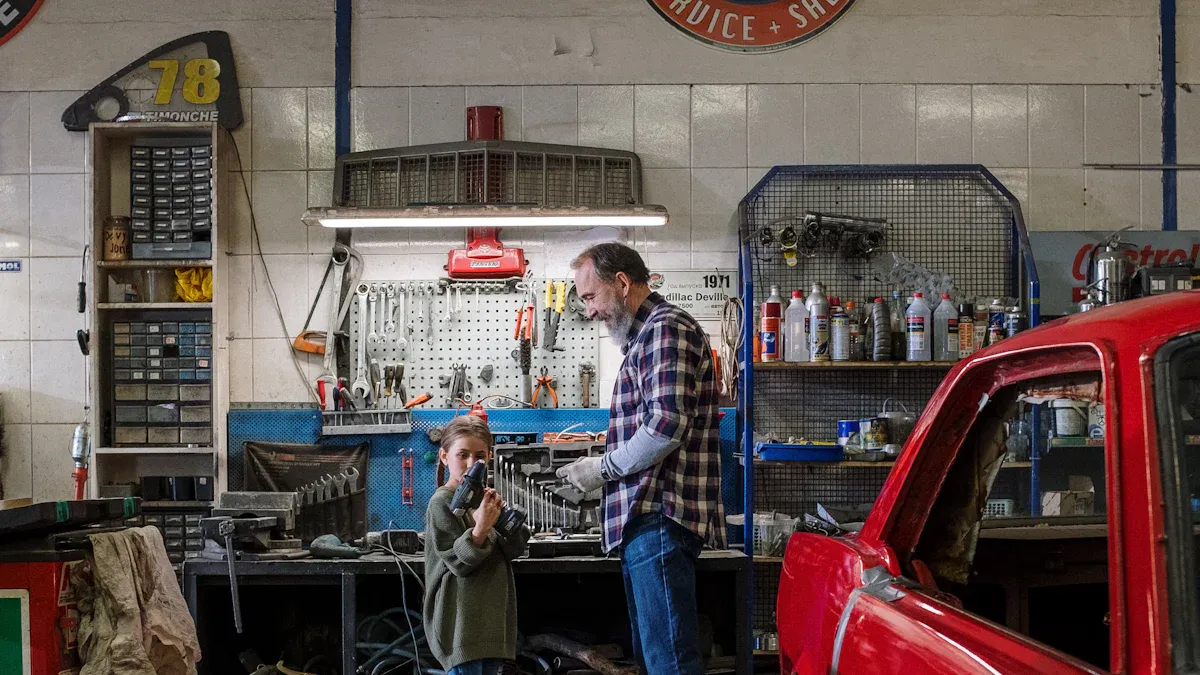
Fonctionnement
Vous devez utiliser votre générateur en toute sécurité pour rester protégé. Les générateurs portables peuvent produire du monoxyde de carbone comme des centaines de voitures. Le monoxyde de carbone peut être mortel en quelques minutes seulement. Utilisez toujours votre générateur à l'extérieur, loin des fenêtres et des portes. Ne le faites jamais fonctionner à l'intérieur de votre maison, de votre garage ou de votre sous-sol. Ne l'utilisez pas non plus dans une remise. Installez un détecteur de monoxyde de carbone en état de marche dans votre maison. Cette alarme vous préviendra si le niveau de gaz est trop élevé.
Conseil : Gardez votre générateur sec en permanence. Ne le touchez jamais avec des mains mouillées. L'eau et l'électricité sont très dangereuses.
La National Fire Protection Association recommande de tester votre générateur chaque semaine. Vous devez également vérifier chaque mois s'il y a des problèmes. Ces contrôles vous permettent de détecter rapidement les problèmes. Votre générateur est ainsi prêt à faire face aux situations d'urgence. Dans certains pays, des règles imposent de tester les générateurs tous les deux ans.. Des tests réguliers vous permettent de détecter des problèmes cachés. Cela permet à votre système d'alimentation de rester solide.
Risques courants liés à la sécurité et solutions
Catégorie d'enjeu | Description du problème | Solution / Amélioration |
|---|---|---|
Fabrication | Fuite de la chambre due à l'entartrage par le calcium | Ajout d'un disque de décompression, mise à jour des protocoles de nettoyage |
Fabrication | Faibles connexions de la carte de circuit imprimé | Utiliser des connecteurs plus robustes, mettre à niveau pour éviter la surchauffe |
Alimentation électrique | Pointes de tension provoquant des arrêts | Ajout d'un parasurtenseur, amélioration des connecteurs |
Maintenance
Prendre soin de votre générateur lui permet de durer plus longtemps. Il lui permet également de mieux fonctionner. Vous devriez suivre un calendrier de vidange d'huile et de remplacement des filtres. Effectuez également des inspections régulières. Ces mesures vous aideront à détecter rapidement les petits problèmes.
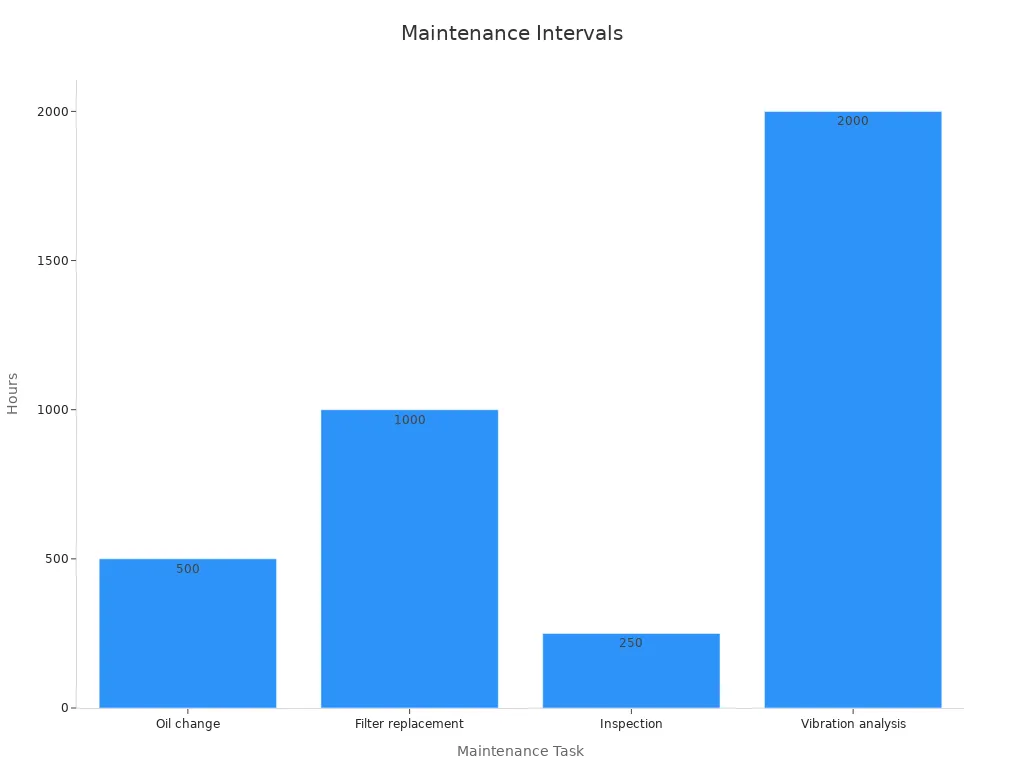
Tâche de maintenance | Combien de fois faut-il le faire ? |
|---|---|
Vidange d'huile | |
Remplacement du filtre | Toutes les 1000 heures |
L'inspection | Toutes les 250 heures |
Analyse des vibrations | Toutes les 2000 heures |
L'analyse des vibrations permet de détecter les problèmes à un stade précoce.
L'analyse de l'huile permet de vérifier si l'huile est sale ou endommagée.
Les systèmes de contrôle modernes vous avertissent des problèmes avant qu'une panne ne se produise.
Un entretien régulier permet d'économiser de l'argent et du temps. Il permet également à votre générateur d'être prêt lorsque vous en avez le plus besoin.
Si vous suivez ces conseils de sécurité et d'entretien, votre générateur durera plus longtemps. Il fonctionnera également mieux. Vous assurerez votre sécurité et celle de votre famille.
Lorsque vous achetez un générateur de qualité, choisissez le type et les caractéristiques qui correspondent à vos besoins. Assurez-vous que le carburant vous convient. Pensez toujours à la sécurité et à la durée de vie du générateur. Choisissez des marques auxquelles les gens font confiance. Les recherches montrent qu'une bonne protection et le fait de savoir comment il fonctionne aident les générateurs à durer plus longtemps. Ces éléments les aident également à bien fonctionner dans les moments difficiles.
Aspect | Résumé des éléments de preuve |
|---|---|
Défaillances internes | Les générateurs se libèrent du stress et du travail difficile. |
Stratégies de protection | La collaboration et une planification intelligente les rendent plus sûres et plus fiables. |
Réfléchissez à ce dont vous avez besoin et utilisez ces idées avant d'acheter.
FAQ
De quelle taille de générateur avez-vous besoin pour votre maison ?
Tout d'abord, additionnez la puissance de tous vos appareils. Choisissez un groupe électrogène dont la puissance dépasse d'au moins 25% celle dont vous avez besoin. Cette puissance supplémentaire permet d'éviter les surcharges. Elle permet également à votre générateur de fonctionner correctement.
Quelle est la fréquence d'entretien de votre générateur ?
Vérifiez votre générateur une fois par mois. Changez l'huile après 500 heures d'utilisation. Remplacez les filtres toutes les 1 000 heures. Un entretien régulier permet à votre générateur de durer plus longtemps. Il lui permet également de mieux fonctionner.
Peut-on faire fonctionner un générateur à l'intérieur ou dans un garage ?
Ne faites jamais fonctionner un générateur à l'intérieur ou dans un garage.
Les générateurs produisent du monoxyde de carbone, qui est très dangereux. Utilisez toujours votre générateur à l'extérieur. Éloignez-le des fenêtres et des portes.
Quel est le meilleur type de carburant pour les secours d'urgence ?
Type de carburant | Meilleur pour | Notes |
|---|---|---|
Propane | Longue durée de stockage | Propre, facile à ranger |
Essence | Utilisation à court terme | Facile à trouver |
Diesel | Utilisation intensive | Longue durée d'utilisation |
Choisissez le combustible qui correspond le mieux à vos besoins et à votre stockage.
